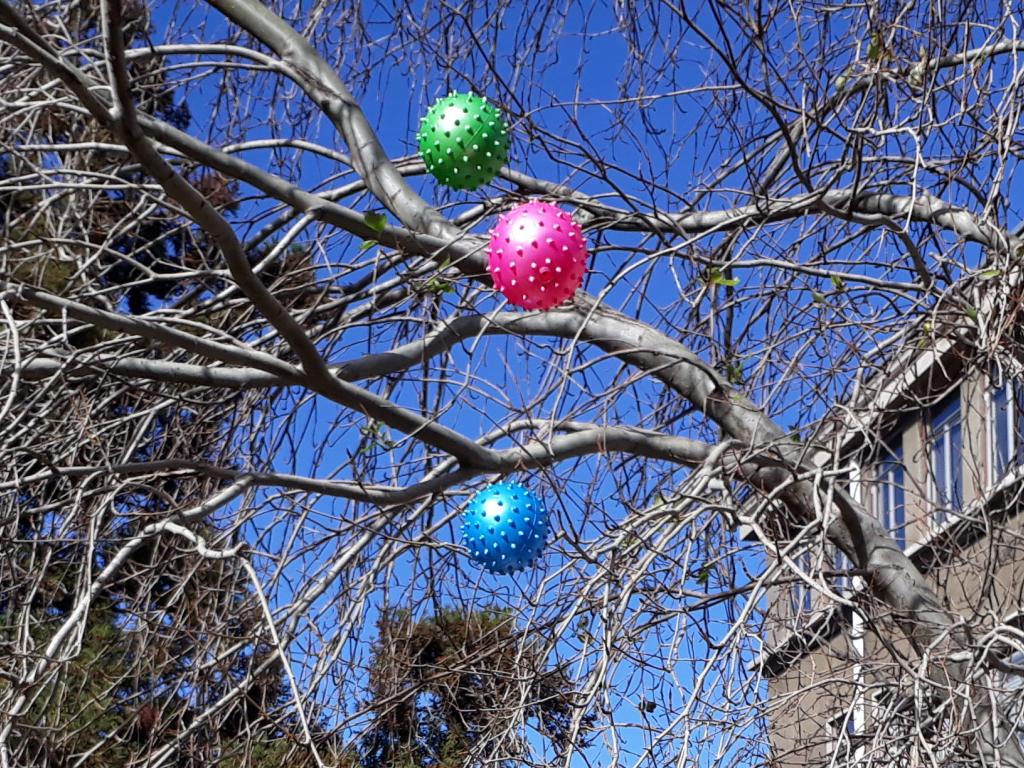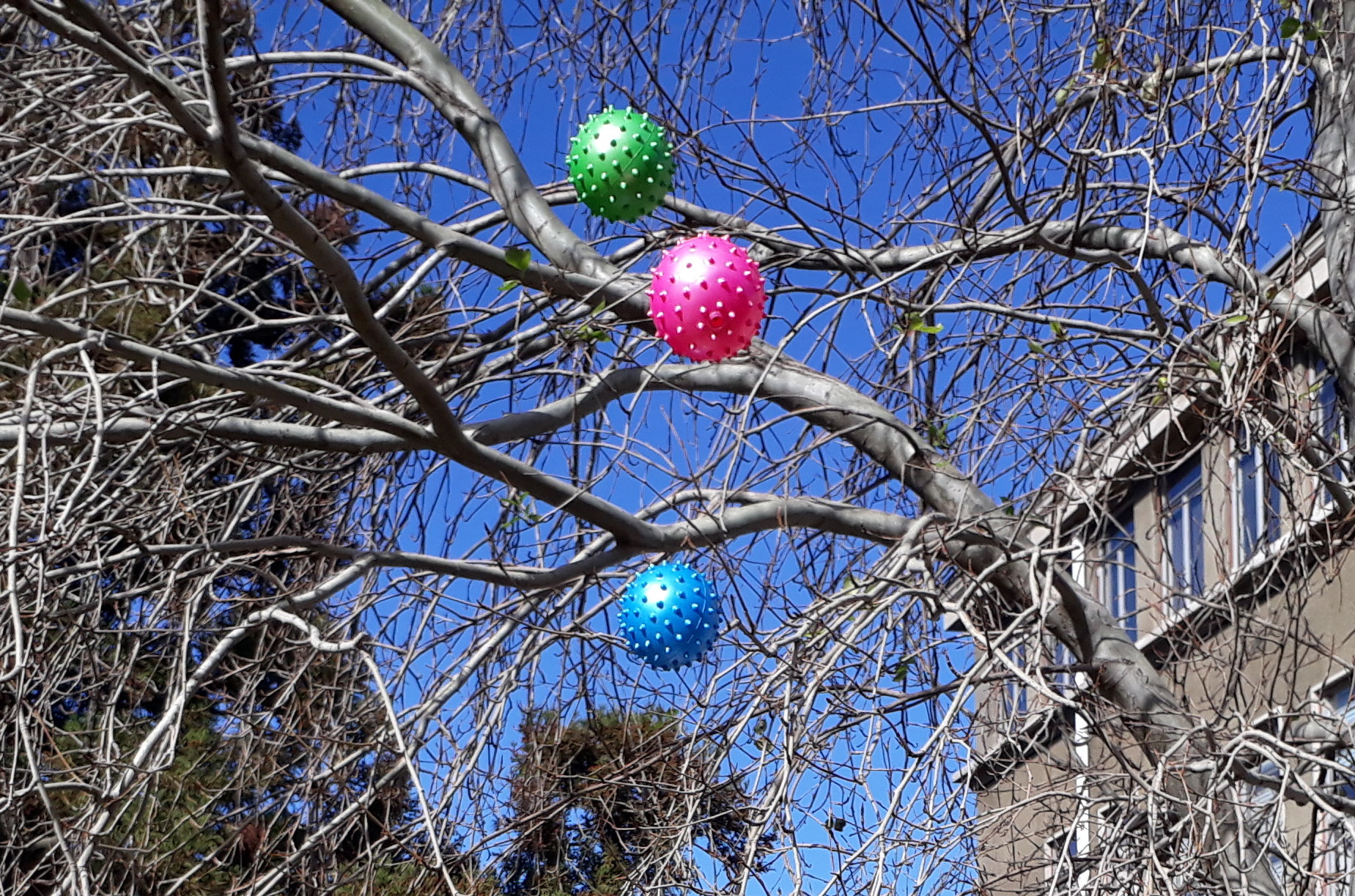The great ASSAR juggle: Reflections from ASSAR’s fourth annual meeting

ASSAR project coordinator Lucia Scodanibbio reflects on the recent 2017 annual meeting held in Ghana and the challenges that lie ahead.

While a group of ASSAR meeting participants scrambled to catch differently-sized, coloured balls that were flying through the air, hitting them or rolling on the floor, the laughter and cries of surprise and dismay drowned out the words I was shouting above the noise:

My list could have gone on and the feelings of overwhelm that the juggling participants felt – as new balls were thrown into the circle and fewer people seemed able to manage the confusion of the situation – reflected some of the feelings I had experienced during the course of our week-long fourth annual meeting in Ghana in July 2017.
At one point, on Day 4, as ASSAR team members worked in their regional groups to discuss their research into use (RiU) priorities and communications needs, I realised just how big the project had become and how little I was aware of, in terms of happenings, plans and decisions being made in the project’s different case study sites. I also realised that in many cases I did not have the answers to the questions or doubts that were automatically posed to me if I happened to pass by: how much funding is available for the comms work? What about the potential shortfall due to currency exchange losses? Is it better to get support from the project’s comms team or to find local experts to help? But will the funds arrive in time? How can the Mali team be supported in its French-language requirements? At some point, I just wished I could disappear and that all these “problems” would magically get solved…

The earlier days of the meeting had focused on cross-regional synthesis issues, and some of ASSAR’s big questions around the barriers and enablers to effective and sustained adaptation, exploring the need for transformation, or issues of scale and justice. I already felt a bit lost, as multiple parallel sessions brought back very condensed and distilled feedback to the plenary, and I kept wondering how we would make sense of all these titbits of information at the project management unit level, remembering how lonely a place this sometimes feels. When we got to Day 4, and six different groups were meeting in parallel, I realised that most probably, we have reached a stage in the project where it is no longer possible, as project coordinator, to follow and be aware of all that is happening. Yet, it is a difficult place for me to be, used as I am, to “control” and be on top of things. Furthermore, isn’t that clarity needed as – over the next couple of months – we finalise our workplans with the activities and outputs expected for the final year of the project? And how to undertake substantial budgetary revisions, across the board, to ensure all our partners are able to deliver on their commitments while the cross-regional synthesis work also receives adequate funding to actually happen?

Perhaps because this was our second-last meeting (with ASSAR finishing in October 2018), it was difficult to avoid thinking about it outside of its wider context. Feelings of pride and satisfaction were boosted as I heard early career researchers state how the capacity building activities they were involved in had transformed their abilities and they were now able to undertake tasks they had never thought possible before. As team members talked about how their shifted understanding of climate adaptation – thanks to our inter-disciplinary focus – now enabled them to gain renewed respect in national policy dialogues, or as small working groups had to be called back into plenary multiple times, given their impossible-to-cut-short discussions, I could see just how different this meeting was, compared to our earlier ones. Energy flowed through many of the sessions, fuelled by some laughter and smiles, as the trust and relationships built over the past three years allowed jokes and mischief to be mixed in between all the serious work and discussions. A much wider sense of ownership seemed to finally pervade the work, with little side meetings taking place from 7am to as late as 9pm as everyone made the most of the precious opportunity to be together in person. As senior researchers mentored students, and as different partners thought about potential future collaborations, all the hardships faced in previous meetings, which had often been saturated with different degrees of confusion or uncertainty, finally seemed to be on the decline, replaced by an appreciation of what everyone brings to the table.
As we embark on the final year of the project, with a never-ending menu of possible topics around which different conclusions can be drawn on how to overcome adaptation challenges in semi-arid regions, a phase of prioritisation and planning will soon happen. This will be followed by a final flurry of fieldwork, data analysis, writeshops, workshops, engagement and influencing activities. My hope is that the energy and momentum generated during our meeting, and the shared sense of ownership that seemed to permeate it, will enable this all to happen, and that some benefit will also be realised for the vulnerable groups that this research targets. Finally, I hope that by the end of all this, my hair colour will still look the same. That is, if I have not pulled it all out…